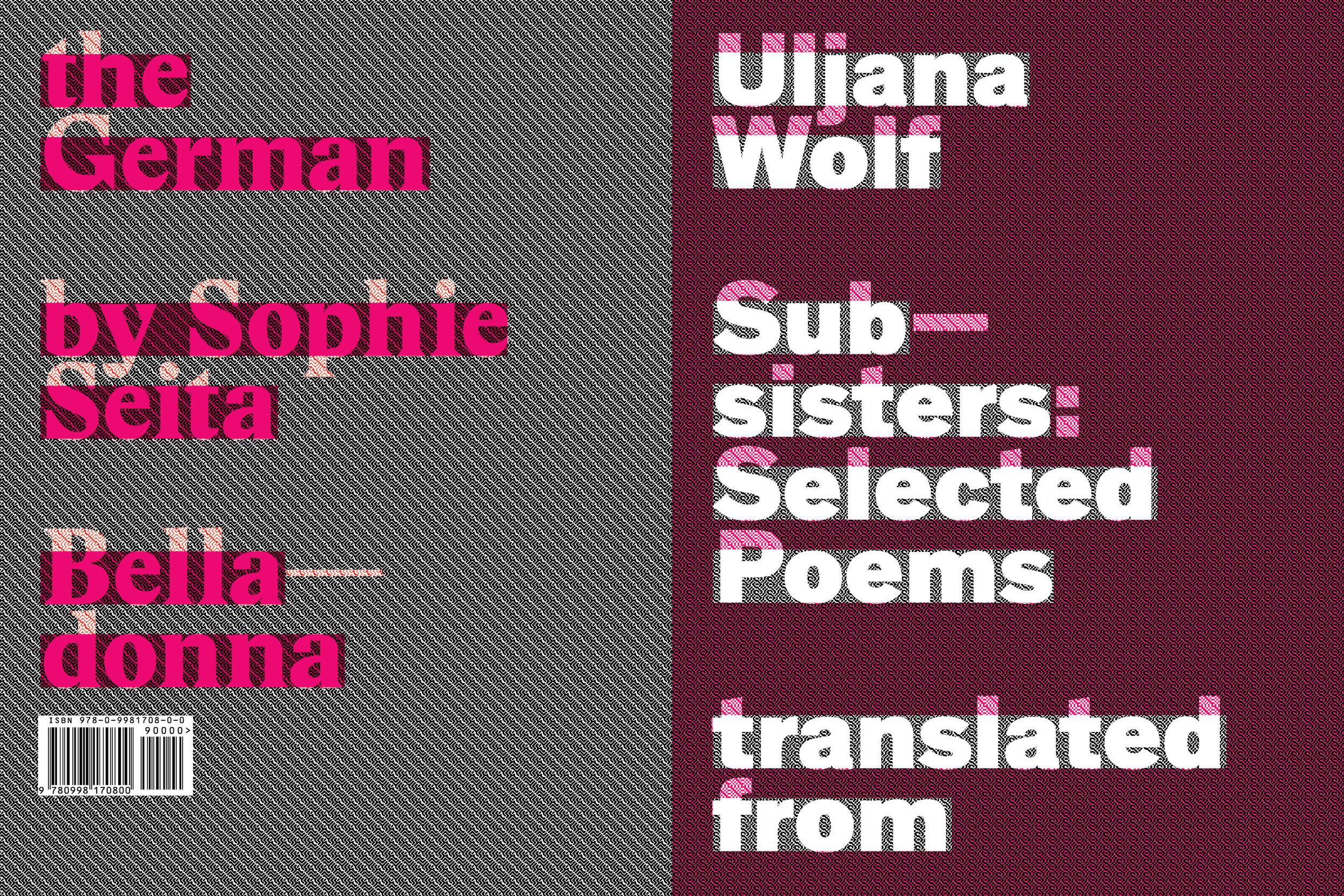Subsisters
Subsisters: Selected Poems, by Uljana Wolf, trans by Sophie Seita (Belladonna*, 2017)
Designed by Jack Henrie Fisher.
Purchase here.
“Two heads are better than ohne” writes Uljana Wolf, ohne meaning “without” in German. Yet these poems are the progeny of not two minds but four (at least), since both Wolf and Sophie Seita approach the original texts as well as their English versions from the dual vantage points of English and German, interlacing the slippages and misalignments between these and other languages into the poems’ fabric. This is poetry as translation, translation as poetry, and echolalia of the best sort. How fitting that one of this marvelous book’s subtexts (from the Latin subtextere, “to weave under, work in below”) be two-fold, twined: Benjamin’s dictum that languages are related in what they seek to express—the kin here being sisters—and that translation is the text’s afterlife. Read: its possibility to subsist. I’m ecstatic for it.
—Mónica de la Torre
This bi-floral or even tri-floral book of poems is for falselandy neighbouring nearspeakers who prefer to hold ear to phoneme to wit. Arranged according to the pleasures of a collaborative conversation between co-translating poets, sinuous between the structured palate and the muscular tongue, Subsisters coheres by means of a joyous principle of augmentation. Wolf and Seita have rendered authority moot; Value here is chosen conviviality. Lightness, charm and play clarify the discovery that all language is polylingual, all worth in shared joy only.
—Lisa Robertson
Uljana Wolf is resistant, even immune, to standard translation approaches: an ironic, if also iconic, state of affairs for a poet who is also a noted translator, and whose poetry thinks so doubtingly about translation, and about doubling in general. Her poetry violates standard ways of speaking and writing because she regards them as complicit in political and social domination. Sophie Seita’s witty and imaginative translations transfer the author’s methods to new territories, take up her process anew, position themselves as the subsisters of the original. Hers is a very contemporary and a very sophisticated way of conceiving translation as composition, conversation, and—above all—play.
—Eugene Ostashevsky
Press:
2017-03-07: Heidi Hart for Music and Literature profiles Uljana Wolf and discusses the translation
2017-04-27: Monica de La Torre for the Poetry Foundation reviews Subsisters
2017-10-27: BOMB Magazine interviews Sophie Seita on Translating Uljana Wolf
2018-01-01: Publishers Weekly reviews Subsisters by Uljana Wolf and translated by Sophie Seita
2018-01-18: Henk Rossouw for the Boston Review features Subsisters
